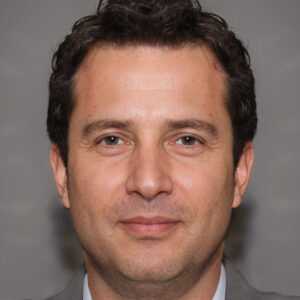Landing a developer job isn’t just about knowing how to code—it’s about showcasing your problem-solving abilities, communication skills, and adaptability. Interviews can feel overwhelming, especially when technical questions and behavioral assessments are thrown into the mix. But with the right preparation, you can walk into that room (or log into that call) with confidence.
Understanding The Importance Of Technical Interviews
Technical interviews assess more than programming ability. They provide a comprehensive evaluation of a developer’s knowledge, problem-solving approach, and interpersonal skills.
Why Developers Need To Excel In Technical Questions
Excelling in technical questions demonstrates a strong foundation in core programming concepts like algorithms, data structures, and design patterns. Employers evaluate how effectively candidates solve real-world problems under time constraints. For example, tasks such as optimizing search algorithms or debugging code snippets highlight analytical thinking. These skills directly connect to productivity and innovation in team environments. Success in this area showcases a candidate’s readiness to handle complex challenges encountered in development workflows.
Balancing Technical Skills With Soft Skills
Proficiency in technical skills is vital, yet equally important are soft skills like:
- communication
- teamwork
- adaptability
I’ve seen interviews where clear articulation of solutions played a decisive role, even for highly technical problems. Building rapport with interviewers and explaining concepts in non-technical terms reflects an ability to collaborate with diverse teams. For instance, simplifying a complex API integration for a non-technical stakeholder requires clarity and adaptability. A balanced skill set ensures seamless integration into modern workplaces that thrive on collaboration.
Preparing For Technical Questions
Preparing well for technical questions can significantly impact interview performance. I focus on key areas like algorithms, coding challenges, and system design to ensure I present a thorough understanding of essential concepts.
Commonly Asked Technical Questions For Developers
- Technical interviews often include specific areas to evaluate core programming knowledge.
- Questions usually cover algorithms (e.g., sorting, searching), data structures (e.g., arrays, linked lists, trees), and problem-solving scenarios.
- Many employers ask about databases and query optimization in SQL-based systems.
- Framework-specific questions, like those about React, Angular, or Django, are common for front-end and back-end roles.
- Familiarity with these topics helps me prepare comprehensive answers.
Tips To Ace Algorithm And Coding Challenges
Solving coding challenges requires a structured approach. I analyze the problem first to ensure I understand the requirements. Breaking tasks into smaller steps clarifies implementation logic. Writing pseudo-code simplifies initial planning and reduces error likelihood during actual coding. Practicing on platforms like LeetCode and HackerRank boosts efficiency in handling common problem types. Explaining my thought process while coding demonstrates clear communication to interviewers.
Best Practices For System Design Questions
System design questions test high-level thinking and design expertise. I begin by clarifying requirements to align with user needs, avoiding assumptions. Creating a clear architecture overview with concise explanations ensures my designs handle scalability, fault tolerance, and performance optimization. Discussing trade-offs in design choices, like NoSQL vs SQL databases or microservices architecture, shows practical knowledge. Practicing these scenarios sharpens my ability to deliver logical and innovative designs.
The Role Of Soft Skills In Developer Interviews

Identifying the right candidate in developer interviews goes beyond measuring technical expertise. Employers prioritize soft skills that reflect how candidates interact, adapt, and contribute in collaborative settings.
Key Soft Skills Interviewers Look For
Interviewers value:
- communication
- teamwork
- adaptability
- time management
Strong communication skills enable clear explanations and active listening. Teamwork demonstrates readiness for collaborative problem-solving, while adaptability shows flexibility in handling varying requirements or challenges. Time management highlights efficiency and prioritization, essential for meeting deadlines.
For instance, an interviewer might observe interpersonal skills during a mock code review exercise or assess adaptability by presenting unexpected constraints in a coding scenario.
Effective Communication During The Interview
Effective communication plays a central role in developer interviews. Articulating thoughts clearly while outlining problem-solving approaches leaves a strong impression. Candidates who explain technical concepts in relatable terms show their ability to communicate with non-technical teams, a crucial workplace skill.
When discussing a system design, clearly describing each component and justifying trade-offs enhances understanding. If you’re walking through code, verbalizing what each line accomplishes shows clarity and confidence.
Problem-Solving And Team Collaboration Insights
Problem-solving ties directly to collaboration in coding or design. Interviewers often assess how candidates involve others in brainstorming and consider feedback. Collaborative problem-solving demonstrates readiness to contribute to a team environment.
In pair programming exercises, sharing solutions effectively and staying receptive to suggestions reflects teamwork. During system design tasks, inviting input about architecture choices shows respect for peers’ perspectives and adaptability to shared goals.
Strategies For A Successful Interview
A thorough preparation strategy is key to acing developer interviews. From researching the company to confidently tackling questions, every step enhances your chances of success.
Researching The Company And Team
Understanding the organization and its culture helps tailor responses. I examine the company’s mission, current projects, and technical stack. On platforms like LinkedIn or the company blog, I identify team members to gain insight into their expertise and roles. Researching past projects clarifies how my skills align with their needs.
Presenting Your Portfolio Effectively
A well-organized portfolio highlights key accomplishments. I curate projects that demonstrate my coding ability, problem-solving, and creativity. For instance, I include GitHub repositories with clear READMEs, showcasing clean, maintainable code. Describing project challenges in interviews helps illustrate my process and impact.
Handling Behavioral Interview Questions With Confidence
Employers assess soft skills through situational queries. I answer using the STAR method (Situation, Task, Action, Result) to share specific examples, like resolving a team conflict or learning new technologies under a deadline. This structure ensures clarity and demonstrates problem-solving, adaptability, and teamwork.


 A creative force behind the scenes, Justino Davisenics brought strategic vision and practical insight to the growth of Code Hackers Elite. Leveraging his experience in developer outreach and digital content curation, Justino helped craft the platform’s user-centric experience and shaped its editorial voice. His contributions have been key in fostering a vibrant community of coders and ensuring the content remains relevant, insightful, and engaging for developers at every stage of their journey.
A creative force behind the scenes, Justino Davisenics brought strategic vision and practical insight to the growth of Code Hackers Elite. Leveraging his experience in developer outreach and digital content curation, Justino helped craft the platform’s user-centric experience and shaped its editorial voice. His contributions have been key in fostering a vibrant community of coders and ensuring the content remains relevant, insightful, and engaging for developers at every stage of their journey.
